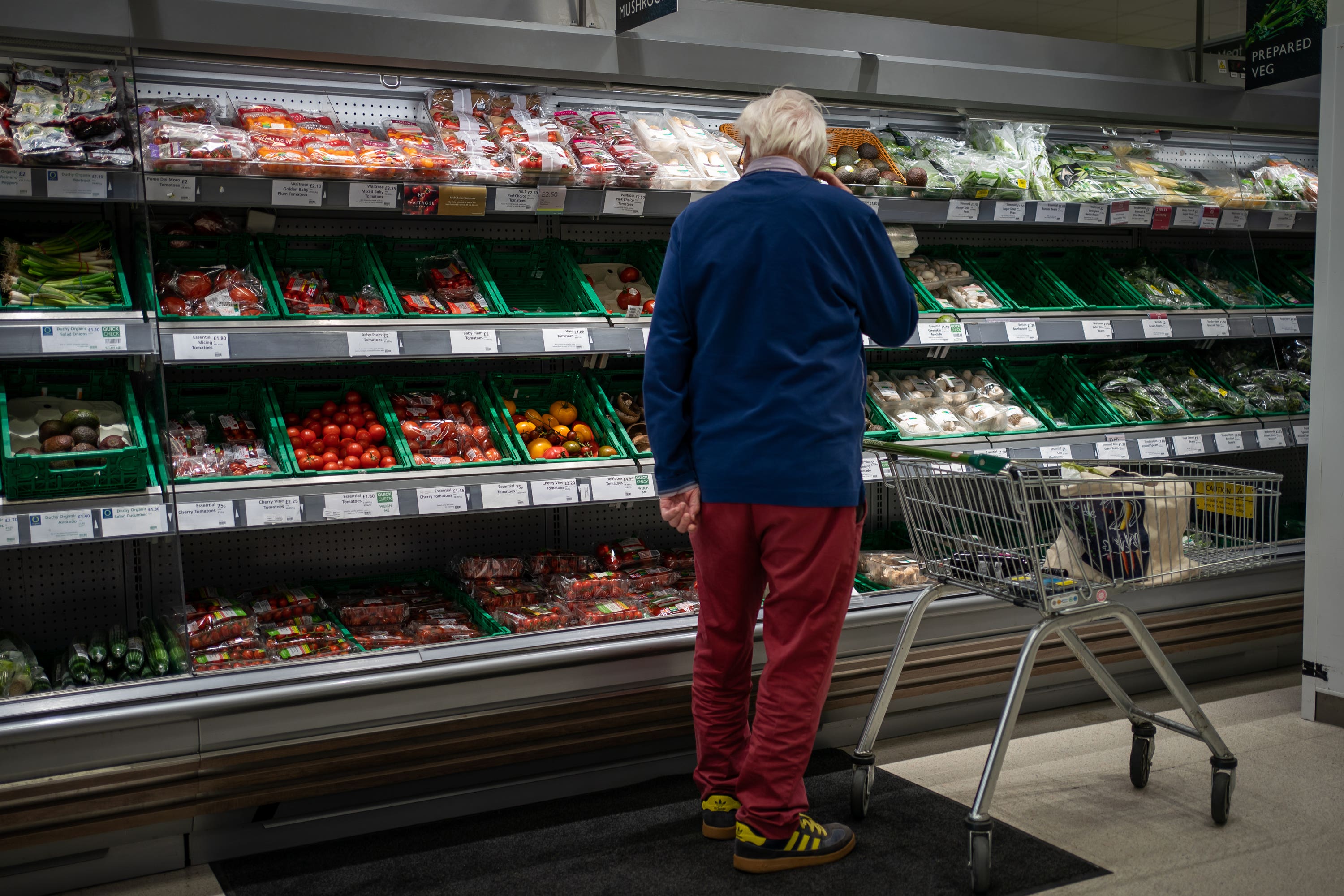Brexit’s worst is yet to come – but that may lead to change
The Independent has been warned of more trouble yet to result from Boris Johnson’s Brexit deal, writes James Moore – but will it bring about any positives?


Remember all the sound and fury about Brexit cutting the Brussels red tape, allowing Britain to catch up with “Asian tiger” economies? Well, now we have empty supermarket shelves, queues at Dover and other ports, and record food-price inflation.
And it is about to get a whole lot worse.
The Independent has revealed the concerns of food sector leaders who are worried that port authorities are unprepared for the implementation of a series of new checks due to come in as part of Boris Johnson’s (ahem) “oven ready” Brexit deal.
Among other things, these include health certifications on some animal, plant and food products from the EU.
Lorries laden with food once trundled in from the continent all but seamlessly, helping to put produce onto supermarket shelves with little difficulty and at low cost. Brexit has already made that process both a lot more complicated and a lot more expensive.
New fees on goods coming into Britain from the EU will also add “hundreds of pounds” to the cost of importing each lorry-load of produce, according to business leaders. The eye-popping estimate of the total bill has come down from £800m to £400m, but that’s still a hefty sum. Meanwhile, the goverment has been beating the drum for digitisation, its favourite cure-all, as if that will magically make the costs disappear.
Larger importers will ultimately pass this increase onto us all through even higher food prices. Smaller ones may struggle to survive at all, reducing the competition that keeps prices in check.
There may also be less choice. The sharp reduction in trade between Britain and the EU is a two-way thing; we are importing less as well as exporting less, and part of the reason is that businesses that previously sold to Britain can quite easily find new, trouble-free markets, not least because they are still inside the world’s biggest single trading bloc.
There are some things that could be done to mitigate the impact of all this. Further delaying the imposition of the checks, as Jacob Rees-Mogg did while he was business secretary, is one option. But if you ultimately scrap them, you create a playing field that isn’t level. Exporters will face a bureaucratic minefield that importers do not have to navigate.
Option two is to look at renegotiating the deal. Rishi Sunak did so adroitly with the Windsor Framework (he is quite the contrast to Johnson and Liz Truss).
But negotiations require compromises to be made. For example, Nick Allen, chief executive of the British Meat Processors Association, wants a new veterinary standards deal to be established with Brussels in order to scrap the required health checks on goods.
Mr Allen is speaking the language of common sense. A deal in this and other areas would be a good idea. Britain’s consumers like high standards when it comes to food. Rules? They’re fine. The sector had become used to operating within them before this craziness began.
Trouble is, agreeing to abide by Brussels’ standards would inevitably annoy the noisy refuseniks on the Tory back benches, who already view Sunak, a Leave voter, as some sort of closet Remainer.
Their objections are philosophical, not practical. Britain must make its own rules! Never mind that Britain has made similar compromises and sacrifices within the post-Brexit trade deals it has signed up to; it is only when these concessions are made to Europe that it seems to create a problem for certain MPs.
The practical consequence is that the British consumer will suffer. How many repeats of the recent pepper and cucumber shortage is Britain prepared to put up with in order to indulge these people?
Frustration among businesses is palpable. They know that this will likely get worse before it improves.
Eventually, the reality of what we have coming will force a change for the better. Even Britain’s politicans, behind the curve as they are, will have to wake up to the reality of their folly. Consumers are also their voters.
Until then, if you have a greenhouse, maybe try growing some peppers of your own.
Join our commenting forum
Join thought-provoking conversations, follow other Independent readers and see their replies
Comments
Bookmark popover
Removed from bookmarks